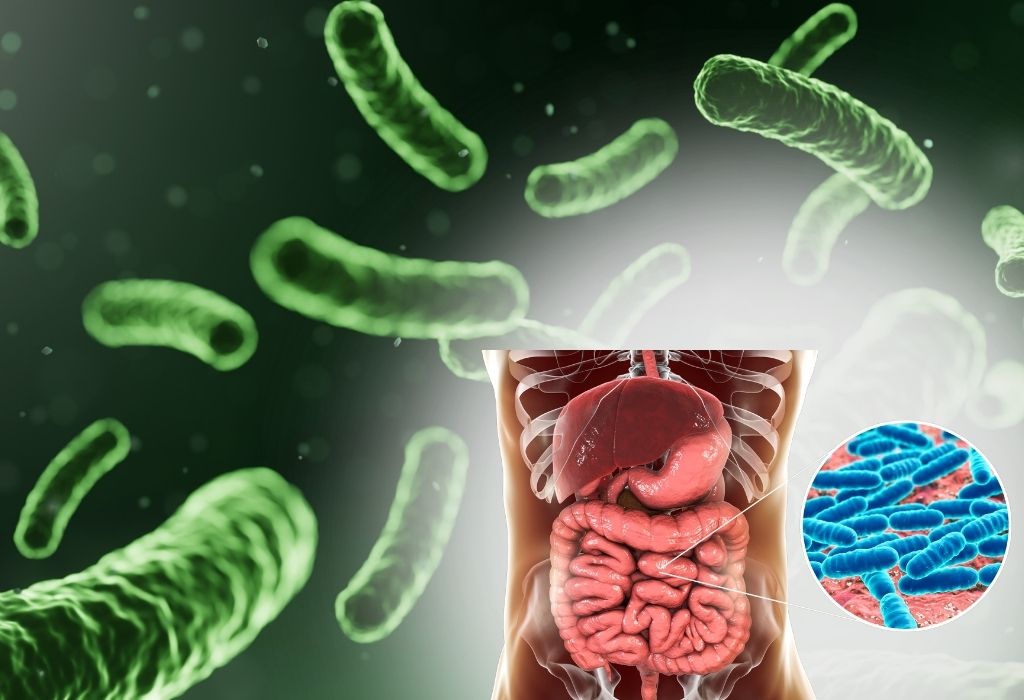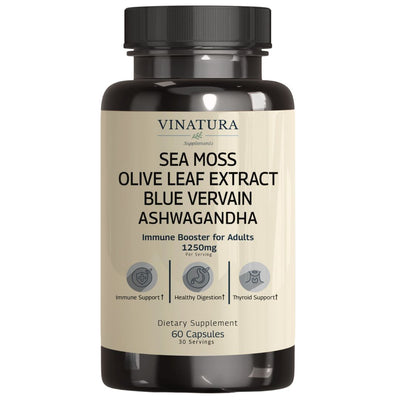
Is Lactobacillus Rhamnosus Safe? How Much Should I Take?
Are you considering taking Lactobacillus Rhamnosus, but don't know if it's safe or how much to take? There have been numerous studies that demonstrate the effectiveness of this probiotic supplement in helping our bodies stay healthy and balanced. Lactobacillus Rhamnosus is a type of lactic acid bacteria that has many positive health benefits including improving digestive health, reducing inflammation and boosting immune system function. In this blog post we will discuss What exactly Lactobacillus Rhamnosus is, Is Lactobacillus Rhamnosus safe and how much Lactobacillus Rhamnosus you should take daily for better health.
Before exploring further, please read the disclaimer located at the end of this webpage.
Overview Of Lactobacillus Rhamnosus Characteristics
Lactobacillus Rhamnosus, also known as Lacticaseibacillus Rhamnosus, is a type of facultatively anaerobic, gram-positive, rod-shaped bacteria that may or may not produce gas.
It belongs to the Lactobacillaceae family within the Firmicutes phylum. L. Rhamnosus is known for its biological properties and is commonly used in various food products and dietary supplements.
Lactobacillus Rhamnosus is one of the bacterial species that exist within the human body. It is primarily known for its role in supporting the digestive system and supplementing beneficial bacteria in the gut [1].
The bacteria is a distinct species within the Lactobacillus genus and has the function of producing lactase enzymes. This enzyme breaks down lactose found in milk into lactic acid.
Is Lactobacillus Rhamnosus Safe?
Lactobacillus Rhamnosus is widely considered safe for consumption due to its extensive use in fermented foods and dietary supplements throughout history.
Both the U.S. Food and Drug Administration (FDA) and the European Food Safety Authority (EFSA) have classified L. Rhamnosus as Generally Recognized as Safe (GRAS) or Qualified Presumption of Safety (QPS) [2].
However, when incorporating L. Rhamnosus into food products and supplements, it is crucial to ensure the use of specific and safe strains, as certain strains may present health risks, especially for individuals with compromised immune systems.
Therefore, it is important to exercise caution and select reliable sources when choosing L. Rhamnosus strains for optimal safety and effectiveness.
Health Benefits Of Lactobacillus Rhamnosus
For Adult
Lactobacillus Rhamnosus has been found to have a significant effect in combating bacterial infections, particularly respiratory tract infections.
Its powerful antimicrobial properties help to fight off harmful bacteria and promote a healthy immune system [3].
Additionally, it has been shown to reduce bloating symptoms and improve digestion, making it beneficial for individuals with digestive issues.
In the elderly population, it has been observed to enhance appetite and aid in maintaining a healthy weight [4].
Moreover, this remarkable substance plays a crucial role in controlling blood glucose levels, making it valuable for individuals with diabetes.
Furthermore, it has been shown to help manage cholesterol levels by reducing bad cholesterol and promoting the production of good cholesterol.
With all of these remarkable benefits, it is clear that this substance is a valuable asset in promoting overall health and well-being.

For Baby
Lactobacillus Rhamnosus GG (LGG) helps children combat diarrhea caused by the Rota virus and promotes the development of infants. It reduces symptoms of colic in infants, a syndrome of persistent crying that occurs without a clear cause.
It has the ability to enhance the immune system to prevent weather-related illnesses such as the common cold and flu. Lactobacillus Rhamnosus GG (LGG) supports reducing the incidence of ear infections [5].

Side Effects Of Lactobacillus Rhamnosus
Is Lactobacillus Rhamnosus safe? Are there any side effects of Lactobacillus Rhamnosus. Common side effects of lactobacillus Rhamnosus GG in healthy individuals may include:
- Stomach discomfort or bloating.
- Allergic reactions: hives; difficulty breathing; swelling of your face, lips, tongue, or throat [6].
Do not use lactobacillus Rhamnosus GG if you have certain specific medical conditions, especially Short Bowel Syndrome.
- Individuals with compromised immune systems - such as those with HIV, AIDS, or cancer - should avoid L. Rhamnosus and other probiotics (or probiotic-containing dairy products), as such supplements can cause infections [7].
Similarly, if you are taking medications that can weaken the immune system - such as steroids, cancer treatments, or organ transplant drugs - you should avoid using probiotics.

How Much Lactobacillus Rhamnosus Should I Take?
It is possible to only supplement products containing the L. Rhamnosus strain or these strains combined with other probiotic bacteria.
Probiotic bacteria are measured in terms of the number of live organisms per capsule, known as colony forming units (CFU). A typical L. Rhamnosus supplement contains approximately 10 billion live bacteria, or 10 billion CFU, per capsule [8].
For Adults In General Health
For general health, a supplement containing at least 10 billion live bacteria is sufficient.
To help prevent antibiotic-associated diarrhea, take 2 L. Rhamnosus GG capsules per day, providing 10 billion live bacteria, or 1 capsule containing over 20 billion live bacteria [9].
Supplement with probiotics a few hours after taking antibiotics, and continue for at least one week after the antibiotic course to help restore a healthy gut.
While traveling, take 1 capsule containing at least 10 billion live bacteria twice a day throughout the trip. It is best to start 2 to 3 days before the trip.
For Children
For optimal results, it is recommended to take half to one capsule per day. To consume, simply open the capsule and gently stir the contents into a cool drink of your choice.
Alternatively, you can also mix it with children's food or water to ensure easy ingestion. Enjoy the benefits of this supplement in a convenient and hassle-free manner [10].

Frequently Asked Questions
Who Should Not Take Lactobacillus Rhamnosus?
Individuals with certain medical conditions, such as Short Bowel Syndrome or compromised immune systems, should not take lactobacillus Rhamnosus. It is always best to consult with a healthcare professional before starting any new supplement regimen.
Is Rhamnosus The Best Probiotic?
Probiotic strains have different effects on the body. Lactobacillus Rhamnosus supports digestion and the immune system, while other strains are better for specific conditions or individuals. Consult a healthcare professional to find the right probiotic for you. Lactobacillus Rhamnosus may not be suitable for everyone, but it has many benefits.
Can Lactobacillus Rhamnosus Be Taken During Pregnancy?
There is limited research on the effects of taking lactobacillus Rhamnosus during pregnancy. It is best to consult with a healthcare professional before taking any supplement during pregnancy.
Conclusion
In conclusion, the question: “Is Lactobacillus Rhamnosus safe?” has been answered. Lactobacillus Rhamnosus is a safe and beneficial probiotic strain that offers various health benefits, such as supporting digestion, boosting the immune system, and promoting overall well-being. It has been studied extensively and shown to be safe for most individuals when taken in recommended dosages. With proper usage, lactobacillus Rhamnosus can be a valuable tool in maintaining good health.
References
- [1] Segers, M. E., & Lebeer, S. (2014). Towards a better understanding of Lactobacillus rhamnosus GG - host interactions. Microbial Cell Factories, 13(Suppl 1), S7. https://doi.org/10.1186/1475-2859-13-s1-s7
- [2] Capurso, L. (2019). Thirty Years of Lactobacillus rhamnosus GG. Journal of Clinical Gastroenterology, 53, S1–S41. https://doi.org/10.1097/mcg.0000000000001170
- [3] Mathipa-Mdakane, M. G., & Thantsha, M. S. (2022). Lacticaseibacillus rhamnosus: A Suitable Candidate for the Construction of Novel Bioengineered Probiotic Strains for Targeted Pathogen Control. Foods, 11(6), 785. https://doi.org/10.3390/foods11060785
- [4] Du, T., Lei, A., Zhang, N., & Zhu, C. (2022). The Beneficial Role of Probiotic Lactobacillus in Respiratory Diseases. Frontiers in Immunology, 13. https://doi.org/10.3389/fimmu.2022.908010
- [5] Kolling, Y., Salva, S., Villena, J., Marranzino, G., & Alvarez, S. (2015). Non-viable immunobiotic Lactobacillus rhamnosus CRL1505 and its peptidoglycan improve systemic and respiratory innate immune response during recovery of immunocompromised-malnourished mice. International Immunopharmacology, 25(2), 474–484. https://doi.org/10.1016/j.intimp.2015.02.006
- [6] Rodriguez, C., Ramlaoui, D., Georgeos, N., Gasca, B., Leal, C., Subils, T., Tuttobene, M. R., Sieira, R., Salzameda, N. T., Bonomo, R. A., Raya, R., & Ramirez, M. S. (2023). Antimicrobial activity of the Lacticaseibacillus rhamnosus CRL 2244 and its impact on the phenotypic and transcriptional responses in carbapenem resistant Acinetobacter baumannii. Scientific Reports, 13(1), 14323. https://doi.org/10.1038/s41598-023-41334-8
- [7] Batoni, G., Catelli, E., Kaya, E., Pompilio, A., Bianchi, M., Ghelardi, E., Di Bonaventura, G., Esin, S., & Maisetta, G. (2023). Antibacterial and Antibiofilm Effects of Lactobacilli Strains against Clinical Isolates of Pseudomonas aeruginosa under Conditions Relevant to Cystic Fibrosis. Antibiotics, 12(7), 1158. https://doi.org/10.3390/antibiotics12071158
- [8] Debnath, N., Kumar, A., & Yadav, A. K. (2022). Probiotics as a biotherapeutics for the management and prevention of respiratory tract diseases. Microbiology and Immunology, 66(6), 277–291. https://doi.org/10.1111/1348-0421.12980
- [9] Allison Tannis, MSc. (2021, October 22). 7 Things Lacticaseibacillus rhamnosus Is Good For. International Probiotic Association. https://internationalprobiotics.org/home/7-things-lacticaseibacillus-rhamnosus-is-good-for/
- [10] Jones, R. M. (2017, January 1). Chapter 9 - The Use of Lactobacillus casei and Lactobacillus paracasei in Clinical Trials for the Improvement of Human Health (M. H. Floch, Y. Ringel, & W. Allan Walker, Eds.). ScienceDirect; Academic Press. https://www.sciencedirect.com/science/article/abs/pii/B9780128040249000094
Author

Product Disclaimer
The dietary supplement products mentioned on this website are formulated based on scientific research and adhere to FDA guidelines for dietary supplements. However, the content of the articles has not been evaluated by the Food and Drug Administration (FDA) and is not intended to promote or endorse any specific product. Any products sold on this website are not intended to diagnose, treat, cure, or prevent any disease.
Opinions and Endorsements
Any claims, statements, or opinions expressed in the articles are those of the author(s) and do not necessarily reflect the views or opinions of the manufacturers of the dietary supplement products. The products sold on this website are separate from the content of the articles and are not directly endorsed or associated with the information presented here.
Liability Disclaimer
The author(s) of the articles, website, and manufacturers of the dietary supplement products do not assume any liability for any potential consequences arising from the use of the information provided in the articles. It is recommended that individuals consult with a qualified healthcare professional before making any dietary or lifestyle changes, including the use of dietary supplements.
Product Usage
Please refer to the product labels and packaging for specific usage instructions and guidelines for the dietary supplement products sold on this website.
Customer Support
For any concerns or questions regarding the dietary supplement products, please contact our customer support team, who will be more than happy to assist you.





Leave a Comment
Be the first to comment.
What do you think?